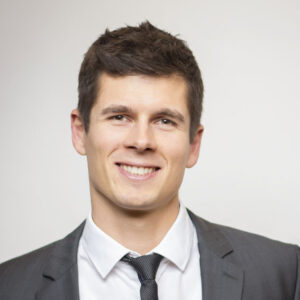- New partners and speakers in the CPN innovation cluster
- Fuel cells will play a key role in the next decade for future energy systems and the switch to renewable energies
- Stationary Solid Oxide Fuel Cell (SOFC) system from Bosch makes valuable contribution to flexible and climate-friendly supply of electricity
Clean Power Net (CPN), the German fuel cell industry association for secure power supply, has a prominent new member: Robert Bosch GmbH. This provides the innovation cluster with further support for its goal of establishing an alternative environmentally friendly source of energy for the future. With its highly efficient solid oxide fuel cell (SOFC) systems, Bosch provides an essential building block for achieving sustainable energy supply. The first systems are already running successfully at selected customers, and series production of SOFC systems is planned from 2024.
In order to achieve a climate-friendly and more efficient supply of energy for industrial users in the long term, CPN has been working together with users and manufacturers from industry and commerce as well as research institutions for more than ten years. With Robert Bosch GmbH, the network has gained an important innovator in the field of stationary solid oxide fuel cell technology. The SOFC systems produced by Bosch achieve an electrical efficiency of 60 percent with an electrical output of ten kilowatts in the basic unit. With the additional use of heat, the overall efficiency can be increased to 85 percent and is thus clearly superior to any other energy converter. The units are scalable up to the megawatt range.
Possible sources of energy are diverse: SOFC plants can be operated today with carbon-neutral biogas or natural gas – and are already hydrogen-capable for the energy system of tomorrow. When operated with biogas or natural gas, no nitrogen oxides or particles are produced and carbon emissions are reduced by almost 40 percent in comparison to the German electricity mix. When green hydrogen is used, CO2 emissions drop to zero. Thanks to their flexibility, SOFC systems represent a key technology for the energy supply – one that already exists today. The stationary fuel cell systems provide a dependable power supply and thus contribute to the transition from fossil to renewable energies. Depending on the energy demand, any number of systems with the same output can be interconnected in the future. This networking of the units can be used to create virtual power plants, which together provide a needs-based energy supply at the point of consumption.
“The joining of such an important partner as Bosch not only constitutes a political statement, but is also an economic signal: We anticipate a win-win situation for our entire network in order to work together on a future with an environmentally friendly energy supply,” explains Andreas Saft, spokesperson of the Clean Power Net. “The cooperation paves the way for our partners and German industrial companies along the entire value chain to activate and introduce fuel cells to the market in business and industry.” Despite increasing competition in a highly diversified market with different types of technologies, the exchange of knowledge and cooperation are indispensable for the transition to renewable energies. This is also something Wayne Kern, Commercial Director SOFC, emphasises: “We want to ensure that climate protection is technically possible and economically viable. With the SOFC system, we are taking on a technological pioneering role and bringing an energy source-flexible solution to the market, which is based on existing infrastructures and can thus already be used as a demand-oriented solution in a decentralised manner. In the coming decade, it will be more important than ever for us to take the necessary steps towards the industrialisation of fuel cell technology. By joining the CPN, we are forging an important new partnership.”
Clean Power Net secures new funding round
Policymakers renewed their commitment to fuel cells at the beginning of 2021 and secured a new phase-two funding round for CPN. This funding guarantees the industry cluster stable financial support in the six-figure range until the end of 2023. In order to face new challenges in the future, the network is also aligning itself for the future in terms of staffing: The CPN General Assembly appointed Andreas Saft (DB Bahnbau Gruppe GmbH) as a new spokesperson and Björn Ledergerber (SFC Energy AG) as the new deputy spokesperson of Clean Power Net.
About Clean Power Net
Clean Power Net (CPN) was founded in 2010 with 12 business leaders to promote the use of fuel cell technology in a concerted and sustainable manner, especially for digital and critical infrastructures. The network’s initiator is NOW GmbH National Organisation Hydrogen and Fuel Cell Technology. Today, the CPN has 19 partners and is funded as an innovation cluster by the Federal Ministry of Transport and Digital Infrastructure with funds from NIP II.
More information: www.cleanpowernet.de

